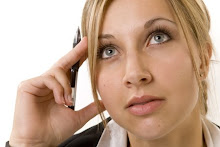


"Prayer is more than meditation. In meditation, the source of strength is one’s self. When one prays, he goes to a source of strength greater than his own." Madam Chiang Kai Shek



"Prayer is more than meditation. In meditation, the source of strength is one’s self. When one prays, he goes to a source of strength greater than his own." Madam Chiang Kai Shek

Music as a Healing Power
Music is a magical medium and a very powerful tool. Music can delight all the senses and inspire every fiber of our being. Music has the power to soothe and relax, bring us comfort and embracing joy! Music subtly bypasses the intellectual stimulus in the brain and moves directly to our subconscious. There is music for every mood and for every occasion. Music Therapy is incorporated in a number of areas of medicine.
Music Therapy
Besides the fact that music of all kinds sounds great, music is good for our health. Music therapy is one of several sound methods that is used for healing.
The effects music has on the human body ranges from calmness to energy to immune system boosting to easing tension in the muscles. Think about the effects music has had on you over the years. It can be soothing. It can give you a rush.
Chanting : Chanting begins with an invocation - a prayer, a group
Breathing : Breath is life! Exchange of electrons. Flow of energy. Air is the primary nutrient. Survival without it is measured in minutes. It is so important that you do it without thinking. Your breathing is the voice of your spirit. It's depth, smoothness, sound, and rate reflect your mood. If you become aware of your breath and breathe the way you do when you are calm you will become calm. Practicing regular, mindful breathing can be calming and energizing. With the addition of music and it's rhythm, the "musical breath" can even help stress-related health problems ranging from panic attacks to digestive disorders. Fall into the rhythm of the music and breathe. Focus on your breathing and the music.


